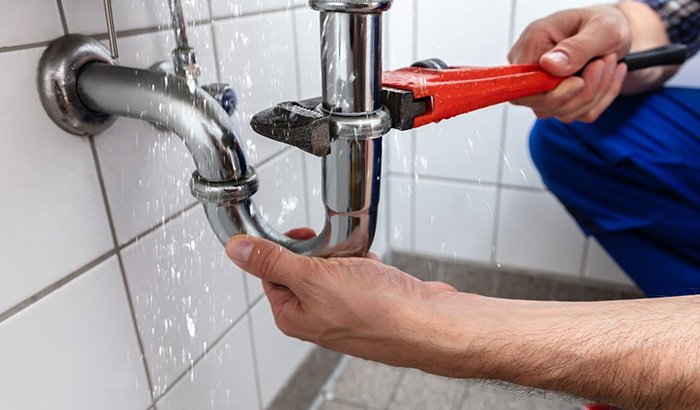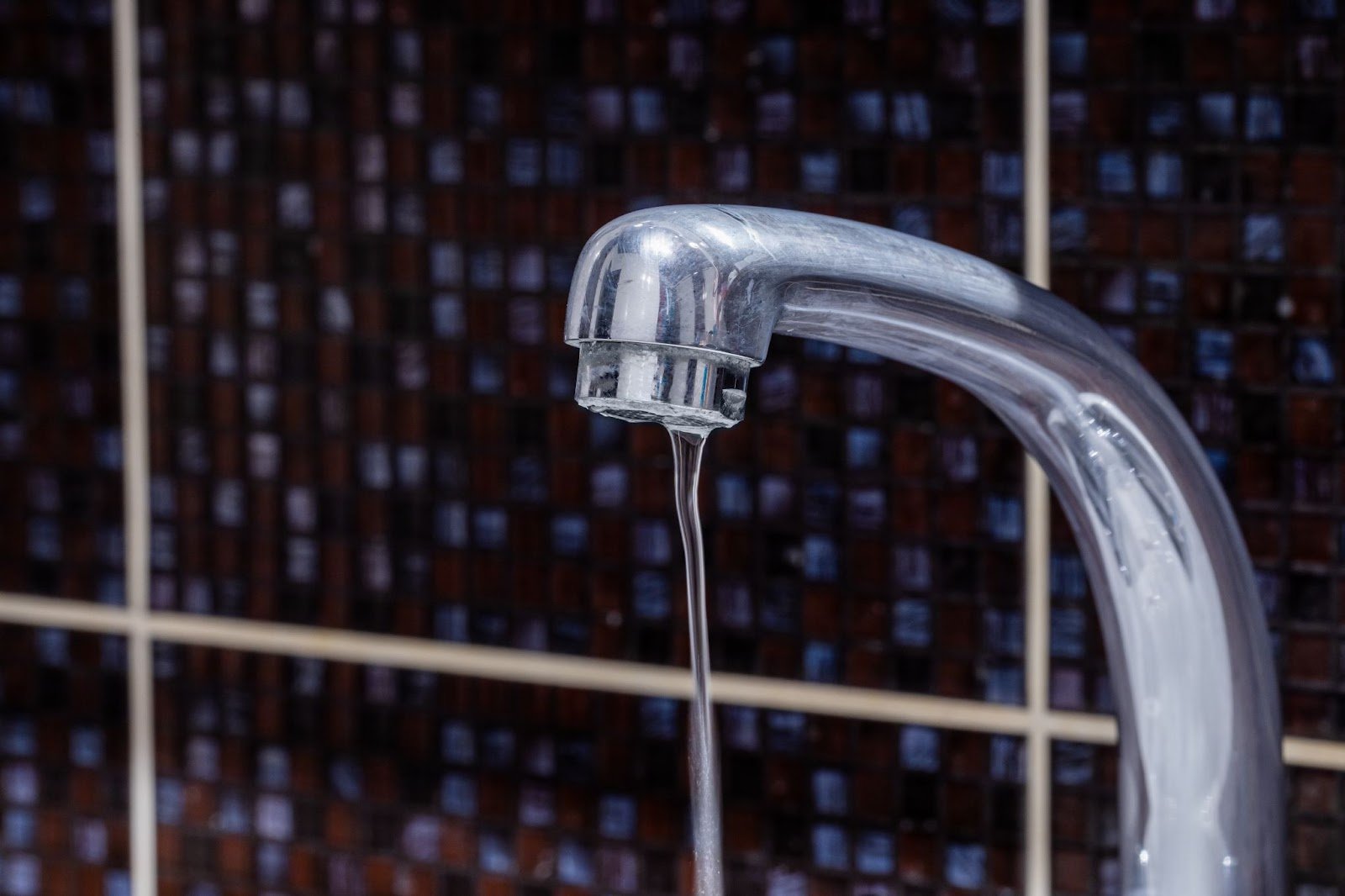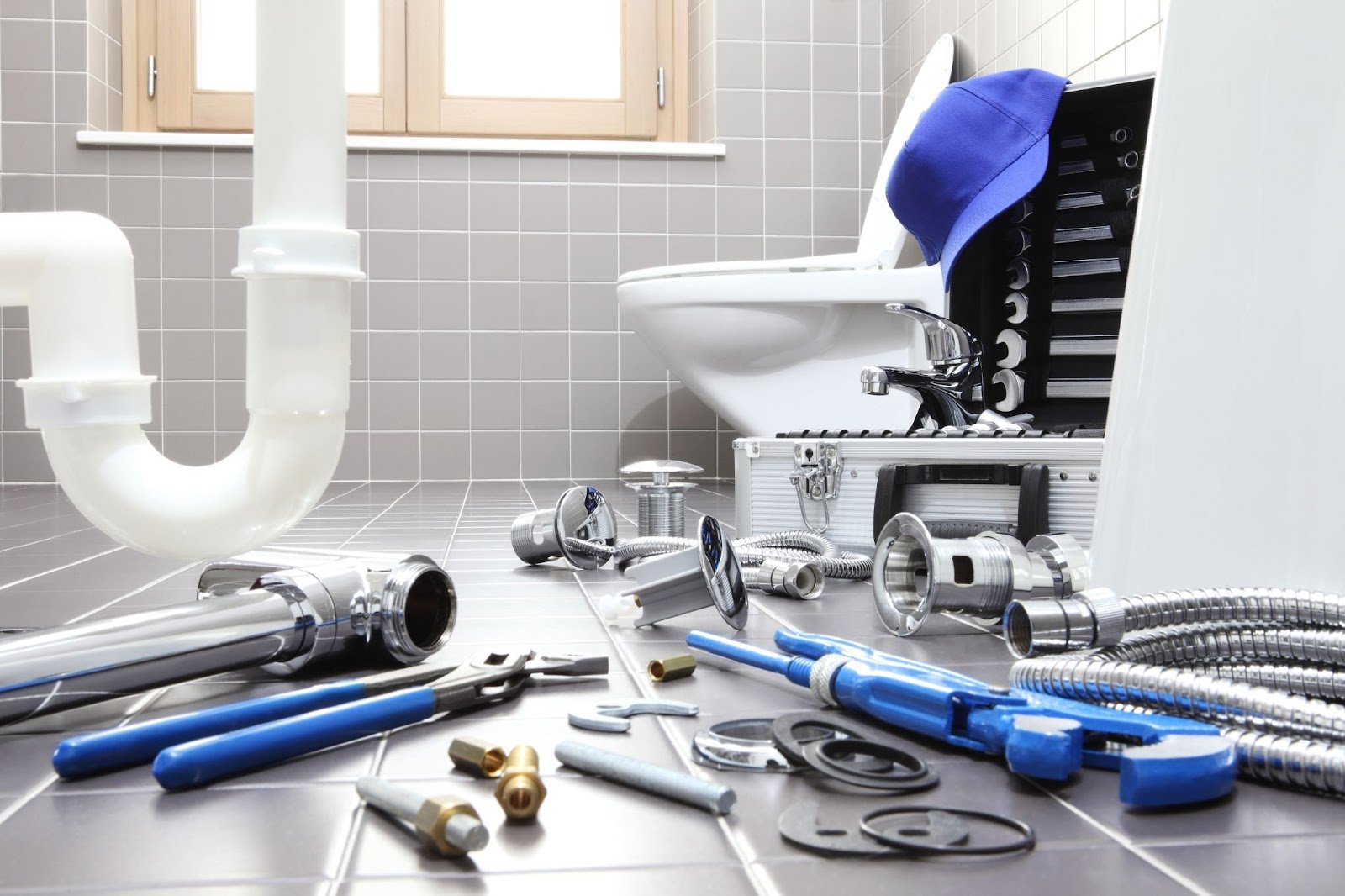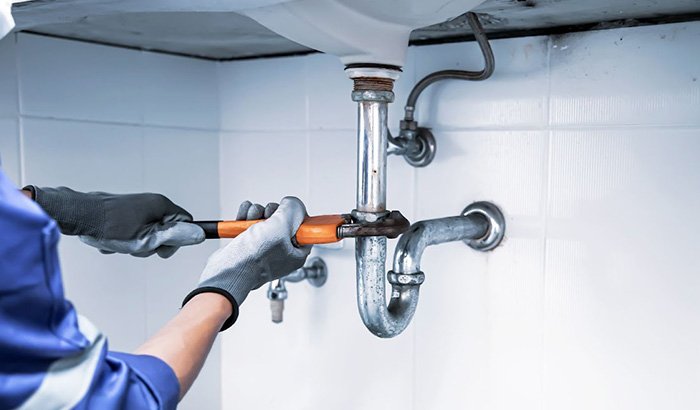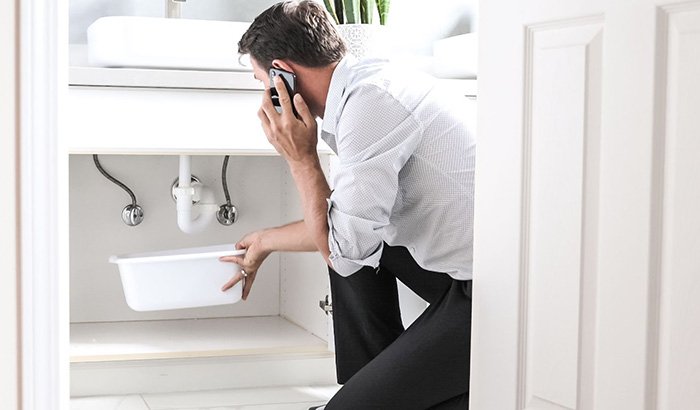When plumbing is faulty, it leads to a cascade of problems ranging from minor annoyances to major headaches. Understanding the roots of these issues is crucial for mitigation and maintenance.
Toilets that turn bathrooms into impromptu swimming pools and drains that morph into stubborn, stagnant pools are more than inconveniences; they are tales of underlying dysfunction in our domestic waterworks.
The causes of these watery woes are often shrouded in mystery, creating a pressing need for clarity and solutions to avoid the spread of moisture and the mounting of repair bills.
As we delve into the clandestine world of plumbing, we will uncover the usual suspects behind common plumbing problems. We will explore everything from the silent struggle against hard water to the unseen perils of overly pressured pipes. Join us in stripping away the mystery and learning how to preempt the plight of plumbing pitfalls.
Leaky faucets and pipes
Leaky faucets and pipes are among the most common plumbing issues in households. These seemingly minor issues lead to significant water waste, which contributes to higher water bills and water damage if not addressed swiftly.
A single leaky faucet can drip away gallons of water over time, making it imperative to understand and fix the cause of leaks as soon as they are discovered.
The tireless drip
The continuous plinking sound of a leaky faucet is a glaring sign of a common plumbing problem. Most often, the culprit behind a dripping faucet is a worn-out washer or a faulty valve seat, both integral components in the mechanism that controls the flow of water. Mineral deposits from hard water can also cause issues, creating blockages or damaging parts, while some faucets, worn-out O-rings, or corroded valve seats are to blame. Regular maintenance can alleviate and prevent the frequency of these irritating and wasteful drips.
The singing pipes
Another issue often encountered in residential and commercial plumbing systems is the phenomenon of ‘singing pipes,’ characterized by odd noises emanating from your plumbing.
Often, these noises signal a loose pipe bracket, high water pressure, or the onset of water hammer — a shock wave resulting from a sudden halt in the flow of water. This can lead to vibrations and loud banging sounds that are more than a nuisance; they indicate potential damage to your plumbing infrastructure.
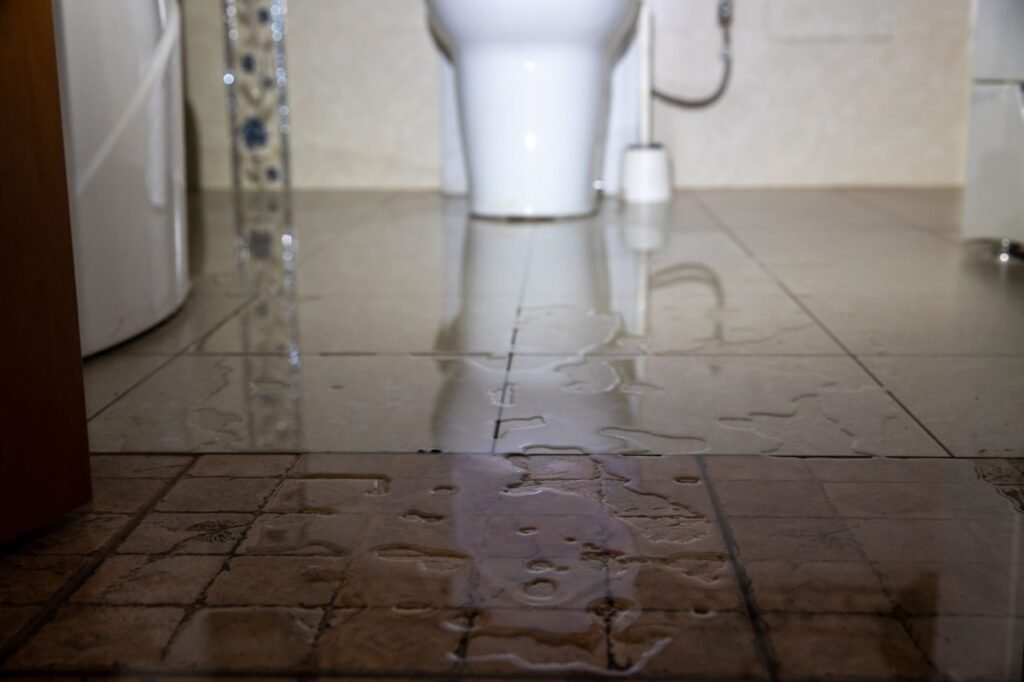
Toilet overflows and leaks
Plumbing clogs frequently cause overflowing toilets. Common culprits include excessive toilet paper and items not meant to be flushed, such as feminine hygiene products or wipes.
On the other hand, leaks often originate from faulty flappers or a malfunctioning wax ring at the base of the toilet, which might allow water to escape onto the bathroom floor. Ensuring proper use and maintaining the internal components of the toilet will help prevent these dreaded bathroom disasters.
Overflowing toilets
Overflowing toilets indicate a blockage somewhere in the pipeline. It’s often the consequence of too much toilet paper or the presence of non-flushable items in the system. Additionally, a malfunctioning float mechanism may cause the water to continue to run, leading to overflow.
When the toilet is flushed, if the water cannot flow freely through the pipes due to a clog, it has nowhere to go but back up and out of the bowl. Regularly educating all household members about what can and cannot be flushed is an essential step in avoiding these unpleasant incidents.
Mystery leaks and puddles
At times, homeowners may stumble upon an unexplained puddle of water near plumbing fixtures. These mystery leaks can arise from various hidden issues such as cracked pipes, loose water supply connections, or deteriorating seals. They might also be the result of condensation on pipes, which can be mistaken for leaks.
Identifying the source of these leaks might require the expertise of a licensed plumber. They may indicate a more severe problem within the walls or under the flooring that, if left unattended, could lead to considerable water damage.
Drains and sewers
Drains and sewers are critical components of any plumbing system. They are designed to transport waste water away from homes and into sewage treatment facilities.
However, these underground passages are not immune to issues; various factors cause plumbing problems. Poor maintenance, the accumulation of waste materials, and even environmental factors can all affect drain and sewer functionality.
Clogged drains
Clogged drains are one of the most frequently encountered common plumbing issues in both kitchens and bathrooms. In the bathroom, soap scum, hair, and other personal care products can form stubborn blockages that disrupt water flow.
Grease, food scraps, and mineral deposits from hard water will accumulate in kitchen pipes, leading to significant congestion. The signs of a clogged drain include slow drainage, gurgling sounds, or unpleasant odors emanating from the sink.
Sewer line blockages
Sewer lines are the main arteries of household waste removal. They’re compromised by various impediments that cause widespread disruption to the plumbing system. Tree roots seeking moisture have the potential to infiltrate and obstruct sewer lines, causing more problems.
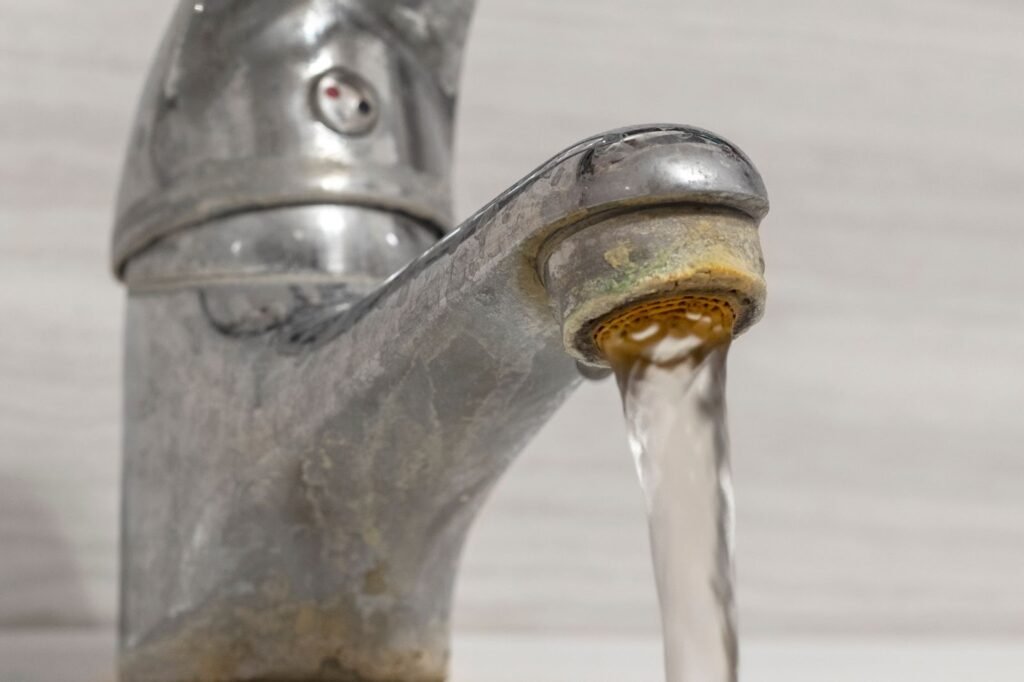
Hard water and mineral build up
Hard water is a common plumbing issue that many households encounter. Characterized by high mineral content, particularly calcium and magnesium, hard water is a natural result of water percolating through limestone and chalk deposits.
Over time, this water contributes to the build-up of minerals in home plumbing systems, often referred to as scale. The presence of hard water affects the taste and cleaning efficiency and poses a significant challenge to the integrity of the plumbing system.
The accumulation of mineral deposits within pipes, commonly known as scale build-up, leads to a range of issues. Scale acts as an insulating material, hampering the performance of water heaters and increasing energy consumption.
It also narrows the diameter of pipes, reducing water pressure and flow. In appliances such as kettles and coffee makers, scale build-up will shorten their lifespan and affect functionality.
Scale build-up in pipes
Scale build-up in pipes is a direct consequence of hard water running through the plumbing system. When heated, hard water releases the minerals it carries, which cling to the insides of pipes and fixtures.
This scale reduces the efficiency of hot water heaters and boilers by creating an insulating layer inside the tank that requires more energy to heat water.
In pipes, the reduced diameter (from encrusted scale) causes reduced water pressure and flow, potentially leading to increased stress on pipes and fittings and raising the risk of leaks or bursts.
High water pressure problems
High water pressure might seem like a good problem to have in your household, as it ensures a satisfying shower and quick-filling pots.
However, while enjoyable, higher water pressure leads to problems and puts unnecessary strain on your entire plumbing system. Common plumbing issues that stem from high water pressure include potential leaks, undue stress on pipes, and accelerated wear and tear on appliances.
Appliances such as kitchen sinks, toilets, and garbage disposals may experience premature failure due to the constant high-pressure onslaught. Prolonged exposure to such conditions also causes annoying and wasteful leaky faucets and showerheads, subsequently increasing gallons of water used and inflating water bills.
Environmental impact
Wasted water woes
Every drop counts, and when it comes to leaky faucets or running toilets, those drops add up faster than you think. By addressing these leaks promptly, we’re saving water, honoring our commitment to the planet, and conserving water for future generations.
The downstream effects
Plumbing problems don’t stay within the confines of our homes; they have far-reaching impacts that affect local ecosystems. For example, a significant leak or a burst pipe can lead to untreated sewage spilling into nearby streams and rivers, posing a threat to wildlife and plant life. This contamination harms aquatic ecosystems but can also disrupt local communities and their access to clean water.
Energy efficiency and plumbing
It’s easy to overlook the connection between our plumbing systems and energy use. However, issues like inefficient water heaters or leaky hot water pipes contribute to higher energy consumption, as more fuel is needed to heat and pump the water.
This not only leads to higher utility bills but also increases our carbon footprint. By ensuring our plumbing systems are in top shape, we’re also taking a step towards more sustainable energy use.
So, there you have it. Leaky faucets and pipes, toilet overflows and leaks, drains and sewers, hard water, and high water pressure can all cause significant problems in your home. Staying proactive whenever something seems amiss will help you keep your home in the best condition possible.
Fix plumbing problems with Valley Home Services
Are you tired of fighting drips, leaks, and clogs constantly? Look no further than Valley Home Services, your ultimate ally in the fight against plumbing woes.
Our team of seasoned professionals brings years of experience, cutting-edge tools, and a passion for excellence to every job, big or small. From the mysterious puddle under the sink to the ominous gurgle in the pipes, we’ve got the skills and know-how to fix it all.
But why choose Valley Home Services? We understand that your home is your sanctuary, and nothing disrupts peace of mind quite like plumbing problems. We’re committed to providing prompt, reliable service that gets it right the first time.
Reach out to Valley Home Services today, and let us turn your plumbing problems into distant memories.

